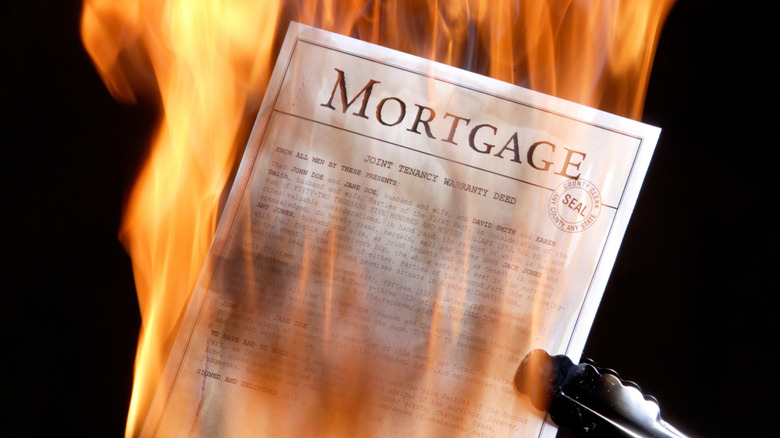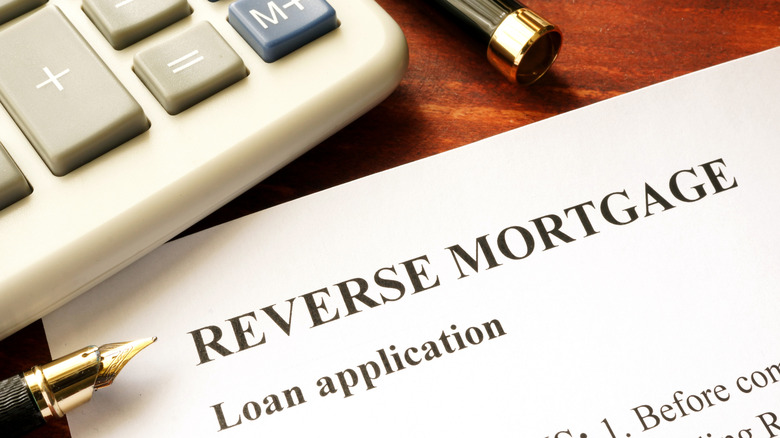The Percentage Of Mortgage-Free Americans Might Surprise You
Home ownership is closely connected to the achievement of the American Dream, which often involves getting a mortgage loan and signing the papers. Then, another exciting event involves the burning of mortgage papers — whether literally in a fire or symbolically by celebrating the mortgage payoff. Chances are that the number of Americans who have actually reached that goal might surprise you.
According to Fast Company reporting on ResiClub's U.S. Census analysis, 40.3% people living in owner-occupied houses have no mortgages on the property. Up from 2023's percentage of 39.8%, this is the highest number of mortgage-free owner-occupied homes to date. This follows as an ongoing rising pattern, ever since 2010 when the figure was 32.8%. When looking at raw numbers, 35 million Americans are living the mortgage-free lifestyle. Broken down by age, over 50% are 65 and up, 32% are 45 to 64, 8% are 35 to 44, and 5% are 15 to 34.
People with paid-off mortgages aren't equally spread across the United States. In general, areas that have higher percentages of older adults or ones with lower home values tend to have fewer people with mortgages. Interestingly, when looking at the 200 most populated metropolitan areas, four of the top five places with the most paid-off mortgages are in Texas, with the outlier being Kingsport, Tennessee. The five metros with the lowest mortgage-free percentages are spread across three locales: Washington, D.C., Utah, and Colorado.
A look at reverse mortgages and its percentages
The ResiClub report noted the likelihood that areas with higher proportions of Boomers would also have more mortgage-free homes. This trend, though, might get shaken up as retired people take out a certain type of mortgage loan: The reverse mortgage. With this mortgage type, retirees with significant home equity (including but not limited to mortgage-free status) receive payments that can be used for expenses of choice, with the money paid out serving as a lien on the property that would impact what beneficiaries inherit. The National Reverse Mortgage Lenders Association disclosed that, since 1990, people have taken out more than 1.3 million reverse mortgages.
No matter how someone manages their mortgage, an older person has clearly lived more years and made more financial decisions than a younger one, including when and how to pay off home loans. Paying a mortgage off before retirement years can really cost a person, though. When repayments are prioritized earlier in life, it typically translates to less emphasis on retirement savings. This can negatively affect a person's financial life later, with less money to spend. It's particularly advisable not to overpay mortgages when other types of debt exist, i.e., high-interest debts like unsecured credit cards and personal loans. For financial security, also ensure you have enough emergency savings before prepaying mortgage loans. So if a medical crisis, unexpected home repair, or other unanticipated large expense arises, it may be paid without using high-interest credit cards.

